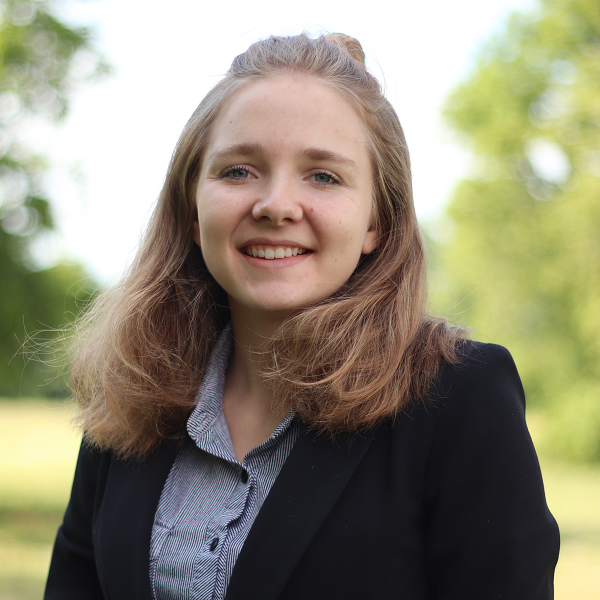
Why Students Struggle in General Chemistry: Understanding Open-Ended Assessment in the Chemistry 111 Classroom

Name: Abigail Tarburton
Majors: Chemistry, Education
Advisors: Dr. Lilliana Morris (Advisor), Dr. Ryan Ozar (Education Advisor)
Second Reader: : Dr. Jennifer Faust
The world of education should always be changing to create a more accessible environment for learners. However, without formal research, educational decisions made in the classroom are entirely up to the discretion of the educator. While adaptations and differentiation should be happening constantly to create the best environment for a set of students, major changes or adaptations are more successful and effective when they are supported by data. To account for students who have intervention specialists, miss a lot of class, or have some degree of test-anxiety or learning disability that does not require an intervention specialist but is still a notable part of their learning experience, many adaptations need to be made to assessments. Educators need for a baseline in the general education setting results in students who ‘fit’ in the gen-ed track to take outdated assessments. This need results in general education students, or students with un-adapted assessments, not getting assessments that are tailored to them. This research aims to understand a type of assessment that is more accessible to all students and allows students to receive credit for information they are coming in with. An example of this information would be cultural knowledge, information from other classes, or even information from the course that wouldn’t be seen as directly related to the question or the material.
 Loading...
Loading...
Posted in Comments Enabled, Independent Study, Symposium 2022 on April 26, 2022.
7 responses to “Why Students Struggle in General Chemistry: Understanding Open-Ended Assessment in the Chemistry 111 Classroom”
Related Posts
Related Areas of Study
Education
Graduate as a licensed teacher in pre-K-12 in fields ranging from science to music education
Major Minor Teaching LicensureChemistry
Access to labs, research opportunities, and small classes give chemistry majors lots of options after graduation.
Major Minor


It was a pleasure to serve as your second reader, Abbi! I don’t have any new questions because I’ve already asked them all. Best wishes for your continued work in CER at Miami University!
Thanks for sharing your poster, Abbi! Fascinating work. What do you see as the most significant opportunities and challenges for broader implementation of open-ended assessments in the classroom?
It is great to see the findings of your project, especially since I had the chance to follow along since Junior IS. Which topic in General Chemistry do you think lends itself best to open-ended-assessments?
Hi Abbi! I love how your project navigates a unprecedented topic in combining education and chemistry! Well done!
Congratulations, Abbi! Open-ended assessment is certainly very different than the types of assessments that are typically used in chemistry classrooms. What is the significance behind asking students to name no more than 7 “correct, distinct, and relevant facts?” How did you score the responses?
Thanks for sharing Abbi! I hope this has been a good experience for you and look forward to hearing about your future work in the classroom.
Dr. Feierabend, I think a huge opportunity is the increase in accessibility for students. A challenge would be that this assessment aligns more with standards-based grading which isn’t super common and requires an educator to be a little more hands-on/ adapt their teaching/ grading style.
Dr. Edmiston, I think anything that could be graded with standards (can they do mole conversions, do they know molecular structure and how electrons work, etc.) would work really well with CEs. Higher level thinking objectives (do they understand how this analysis technique could be used in water treatment, for example) are are little more difficult to asses with this technique and require a more direct prompt.
Dr. Martin, the prompt is designed to figure out what students know and think about when faced with certain concepts. It was scored exactly how the prompt was stated! Were there enough answers? Were they distinct? Were they correct? Sometimes when educators use this assessment they’ll say only one answer can be outside the scope of the course and that’s where the relevant comes in. This is beneficial in terms of accessibility and grading transparency because the way it’s scored is right in the description.